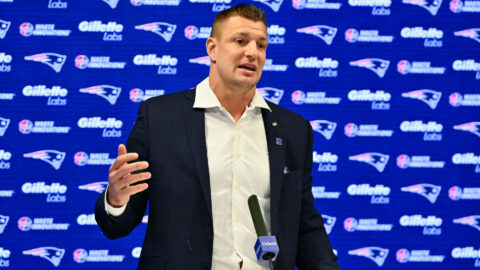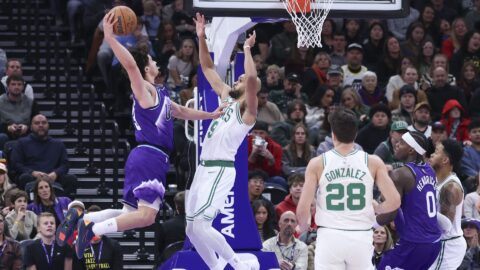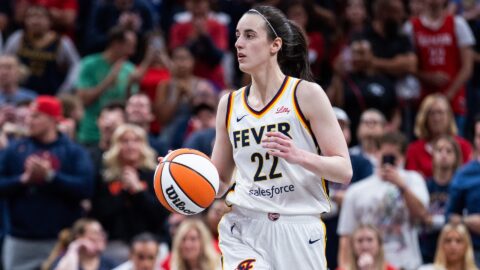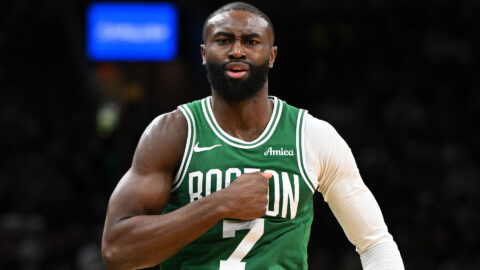 In 1964, the revolution was nearly televised.
In 1964, the revolution was nearly televised.
The NBA was set to feature its first live, televised All-Star game in Boston. It was a big deal for the nine-team league, which would be called a "bush league" by Wilt Chamberlain on the cover of Sports Illustrated a little more than a year later. The Celtics regularly braved the wintery slick of I-95 to play games in Providence, R.I., while the Philadelphia 76ers traveled more than 100 miles for games in Pittsburgh, Scranton and Hershey, Pa. Bill Russell had six championship rings, on his way to a seventh later that season, yet he was not nearly as popular or recognizable as Northern Dancer, the colt who won the first two legs of horseracing's Triple Crown that year and went on to become the most prolific sire of the 20th century (other than Chamberlain, potentially).
A televised All-Star game therefore was one of the key moments in the development of the NBA, and almost every owner was on hand at the Boston Garden for the event. Boston was one of the few cities where professional basketball rose to something resembling a major league sport at that time, and the crowd would be buzzing for Russell, Sam Jones and Tom Heinsohn, the Celtics stars participating in the game.
In the Eastern Conference All-Stars' locker room, though, there was a revolt brewing. Heinsohn, the president of the players association, had been in talks with the owners for months about improving the working conditions for the players. The minimum player salary was $7,500 (about $53,000 in 2012 dollars), according to a 2011 recounting by Mike Bresnahan of the Los Angeles Times, and among the players' demands were a pension and greater focus on conditions for helping players stay healthy. Several times in the negotiations, according to written accounts by Russell and others, the players warned the owners that a strike at the All-Star game was a possibility.
The owners were furious, as one would expect. Celtics owner Walter Brown, who was largely player-friendly for an owner, and Lakers owner Bob Short were among the most visibly angered, according to historical accounts. Short warned his players, Elgin Baylor and Jerry West, to play in the All-Star game or never play in the league again. Brown and a few other owners apparently promised to revisit negotiations if the players would simply play that night.
The more hard-line players were helped on fomenting support due to the relatively low compensation for players league-wide. Virtually every player had a summer job in the offseason and a college degree, unlike today, which boosted their negotiating position. During the labor negotiations in the summer of 2011, LeBron James would never have realistically threatened to walk away from millions of dollars to go sell insurance, but in 1964 and in later labor disputes, that was precisely what many players said they would do.
Fortunately for TV viewers and the NBA's marketing department, the pragmatists among the owners won out and the game was played, with the sides eventually agreeing on expanded labor rights. One of the leaders in that locker room, Oscar Robertson, would become president of the players union and have his name attached to the 1970 antitrust suit that led to free agency and did away with restrictive draft rules, but the courtroom drama of Robertson v. National Basketball Association could not match the tension the players felt under the seats in the Garden.
Labor rights did not simply appear for any workers, professional athletes included. For baseball players there were Sandy Koufax and Don Drysdale, followed by Curt Flood. For football players there was Creighton Miller, Jim Brown and John Mackey. For the rest of us there was Upton Sinclair, the Pullman, Ill., railway strike and a number of influential, if controversial, labor leaders in the years since.
For basketball players, there were the revolutionaries in the Garden locker room in 1964.
Have a question for Ben Watanabe? Send it to him via Twitter at @BenjeeBallgame or send it here.



